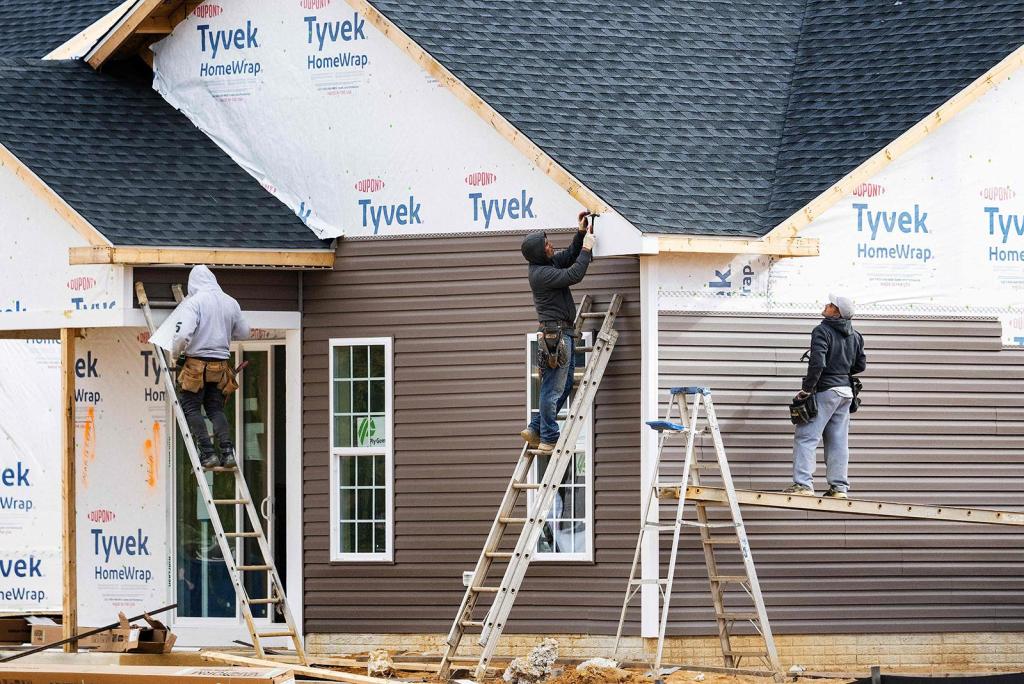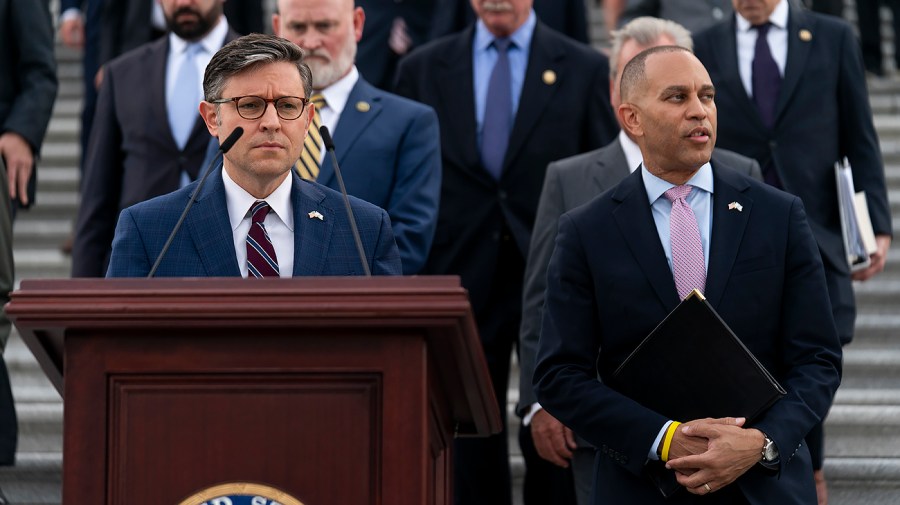
By Prashant Gopal, Bloomberg News
With average mortgage rates approaching 6%, U.S. home buyers are looking for the most affordable monthly payments of the year. But San Antonio real estate agent Tavyn Weyman knows how to lower it — much lower.
The method is simple: buy new.
In markets across the US, homebuilders who have unsold inventory are subsidizing mortgage rates so heavily that they have at times matched record lows last seen during the Covid-19 pandemic. That doesn’t include amenities like free utilities, a finished basement, and no closing costs.
Weyman said a large private builder recently gave one client a flat rate of 3.49% on a $414,000 home on the city’s west side. The sales agent even increased Weyman’s commission to cover the buyer’s lease violation costs and threw in an additional $2,000 to make the first month completely free.
“You want to pay $2,000 a month for a new 4-bedroom house and get a 2% rate, I can find one now — that sounds crazy,” Weyman said. “Everything is negotiable.”
A single mother moving from Florida is attracted to the 3.99% fixed interest rate offered by DR Horton Inc., the largest U.S. builder by stock market value. But it was the introduction rate of less than 1% in the first year that really caught his attention, Weyman said.
This is not a benefit of a healthy housing market. It’s a tactic of an industry seeking to attract buyers as tariffs, government shutdowns and artificial intelligence add to feelings of job insecurity.
Year-over-year layoffs have topped 1 million, the largest figure since the pandemic, according to staffing firm Challenger, Gray & Christmas. Last month alone, companies announced 153,000 cuts, which was the largest number of cuts in an October since 2003.
This anxiety drowns out the predicted surge in homebuyer demand as mortgage rates decline.
“We expect to see a bigger impact from the mortgage rate cuts we’ve seen,” DR Horton Chief Executive Officer Paul Romanowski said on a call with analysts last month. “It’s really choppy.”
Other developers have expressed disappointing responses from the market. Century Communities Inc. in its earnings report said demand from entry-level buyers was very weak. PulteGroup Inc. said first-time buyer orders fell 14% in the last quarter compared with a year earlier.
“Lower interest rates are a positive for housing demand, but interest rates do not operate in a vacuum,” Ryan Marshall, CEO of PulteGroup, said in an earnings call last month. “There is a clear impact if interest rates fall because the economy is slowing and people are worried about their jobs.”
A big obstacle for new sales agents is that renting is now much cheaper than buying. Rents are starting to decline, and landlords are reporting retention rates near record highs.
Meanwhile, resale listings are no longer limited, giving buyers many other options. However, only a few bite. Pending sales stalled in September, still slightly above record lows.
“The existing market is a much tougher competitor for homebuilders than it was before,” said Mark Zandi, chief economist at Moody’s Analytics. “There are a lot of concerns about job security, given the absence of labor recruitment. And artificial intelligence (AI) is starting to emerge.”
For the first time, new home prices in July and August were cheaper than existing homes, according to an analysis of Census and National Association of Realtors data from John Burns Research & Consulting. The average premium since 1973 has been 16%. The analysis does not include incentives.
Production builders spent an average of 7.5% of the sales price on incentives in the three months ending in August, up from 4.8% in May 2024, according to the company’s builder survey.
“There is an opportunity to buy a new home at a very low price,” said Eric Finnigan, vice president at John Burns. “The big surprise is why sales are still so weak.”
But not all interest rate purchases are created equal. Some banks lower borrowing costs permanently for the full 30-year term, while others keep interest rates low only temporarily. The deal could work well for households hoping for an increase in income or refinancing in the future – but it carries real risks for borrowers who are unprepared for a spike in monthly payments once the promotional period ends.
Lennar Corp. is holding a nationwide “Inventory Closing Sale,” offering rates of 3.75% in Denver and price reductions of up to $70,000 in Charleston, South Carolina. Lennar is spending 14% per home on incentives as a profit share this year, up from 10% in 2024.
The strategy of underestimating the resale market appears to be working, at least according to Weyman. A San Antonio agent said seven of the eight homes he sold this year were newly built.
“New home buyers expect so much that you have to get more,” Weyman said. “I always advertise that I will never make a client pay closing costs, especially now.”
—With help from Julia Fanzeres.
(Updates with October layoffs in eighth paragraph.)
©2025 Bloomberg LP Visit bloomberg.com. Distributed by Tribune Content Agency, LLC.



